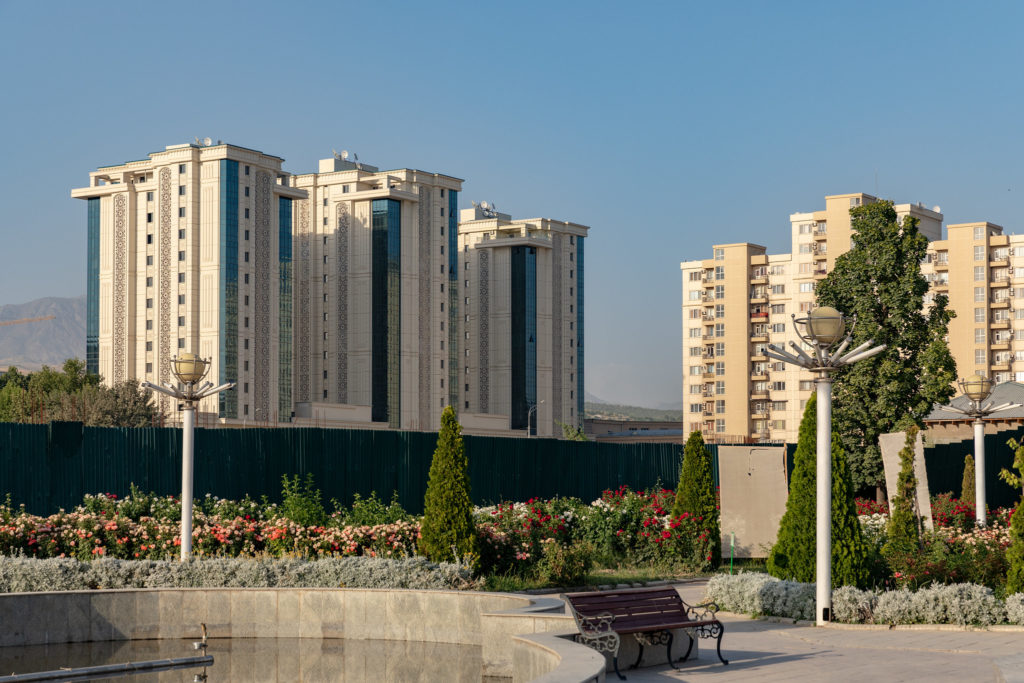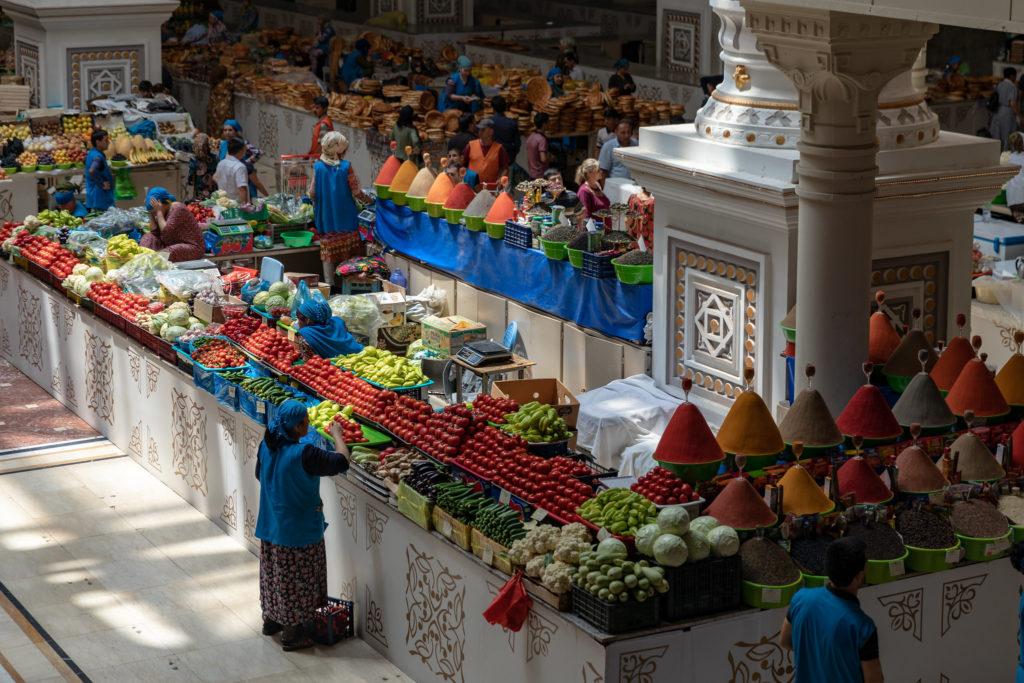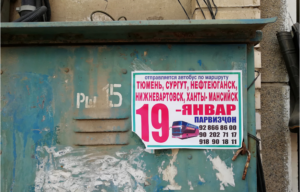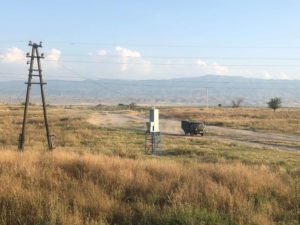As Tajikistan boasts a lack of coronavirus cases, both experts and the population raise doubts about the authorities’ sincerity. Could the government be hiding the truth, fearing panic and a possible economic collapse?
This article was originally published by Novastan’s French website in April 2020.
With Turkmenistan, Tajikistan is the only country in Central Asia that has not reported any cases of Covid-19. However, in April, numerous deaths from pneumonia, tuberculosis or heart failure, mostly linked to quarantine or returning from abroad, have cast suspicion on the official toll. According to local reports, a few suspicious deaths are registered every day.
Want more Central Asia in your inbox? Subscribe to our newsletter here.
The situation is particularly tense in the North-Western region of Sughd, especially in Khujand, the second biggest city, near the border with Uzbekistan and Kyrgyzstan. In mid-March, president Emomali Rahmon took part in spectacular celebrations of Nowruz, the Persian New Year, in Khujand, surrounded by 12 000 dancers, singers and spectators. This went against the World Health Organization’s (WHO) recommendations to cancel mass gatherings.
Suspicious deaths due to a “seasonal” pneumonia
The first suspicious death to be reported was that of Habibullo Shodiyev, a 60-year-old man who entered the Central hospital of the Northern region with severe pneumonia during Nowruz. He died in ICU on March 31, according to Radio Ozodi, the Tajik branch of American media Radio Free Europe. His relatives told Radio Ozodi that he had returned from a wedding in Kyrgyzstan with a high temperature and symptoms of pneumonia.
As Tajik media Asia-Plus reported, officials later denied this information, asserting instead that Habibullo Shodiyev had fallen ill after playing football outside. According to officials, cited by Eurasianet, samples from the deceased were tested for coronavirus in Dushanbe, and came back negative. These deaths would have gone unnoticed had local media not reported that the whole hospital had been placed under quarantine. What’s more, another resident that had been in contact with Habibullo Shodiyev’s brother died on 11 April, reportedly from heart failure.
The toll from “pneumonia” and other respiratory diseases sharply increased through the month, with new deaths reported every day. Deputy Minister of Health and Social Protection Shodihon Jamshed attributed this sudden rise to “adverse weather conditions”, Asia-Plus reports. He added that the number of respiratory diseases, including pneumonia, had sharply increased in recent days.
Sometimes, these people are not even tested for Covid-19. Jamsher, a Tajik citizen from Dushanbe contacted by Novastan, was told that his 81-year-old grandfather died from pneumonia on 17 April, without any testing. “We were told that he is old and that it’s normal at his age to die from some illness”, he said.
An “alternative” death toll
This “suspicious pneumonia” has not spared healthcare workers at the forefront of the fight against Covid-19. In mid-April, a 58-year-old nurse, who worked at a hospital in the city of Bokhtar with people in quarantine, died, reportedly from tuberculosis and heart issues. Relatives mentioned that they did not know she had suffered from tuberculosis. Her funeral also happened without a body, as reported by Asia-Plus on 16 April.
But the case that stands out most happened in Dushanbe. On 19 April, a 38-year-old employee from the prosecutor’s office died from severe pneumonia. He had returned from abroad on 6 April, alongside other Tajik residents, but had not stayed 14 days in quarantine, reports Russian media Sputnik. Before his hospitalisation on 16 April, he had gone to work and been in close contact with many others. In the hospital, he was treated as a regular patient, with no special protection measures. His body was brought in a closed plastic bag directly to the funeral. Usually, the deceased is washed before the funeral.
Citizens worry about this “alternative death toll” as schools, markets, government bodies and companies stay open. “This is chaos, what is happening around. Every day we hear about new deaths”, Tahmina*, a craftswoman from Khujand complained to Novastan. She gets regular worrying updates from friends in the hospital.
“The strange thing is that the bodies of these people are not always given back, or they are given in closed plastic bags with instructions not to open it. So, the people can’t follow religious rules and wash the body before burial,” says a citizen of Khujand who wished to remain anonymous. What’s just as troubling is that those who have been in contact with people killed by a suspicious illness are put in quarantine by the authorities, as described by Radio Ozodi.
Making provisions for two years
Some experts believe that this increase in suspicious deaths from respiratory problems is not a coincidence. According to Andrea Schmitz from the German Institute for International and Security Affairs, the reasons for this national secret might be demographic. The Tajik population is young and therefore less at risk of dying, with only 9 % of it over 55. “The health service is in a catastrophic state and quarantine facilities’ conditions are more likely to accelerate than slow the spread of the virus”, she adds.
It was expected that some cases would be acknowledged once the president’s son Rustam Emomali was elected as Speaker of Majlisi Mili, Tajikistan’s upper chamber of Parliament, on 17 April. This position is the second-highest political role in Tajikistan. But president Emomali Rahmon did not announce any cases after all.
His speech gives some indication of why the Tajik state is waiting so long to recognise the presence of the virus. Indeed, Emomali Rahmon stressed that the effects of panic-buying and of a lockdown could be more dangerous for the country than the coronavirus itself. In a country where many sectors of the economy are in the hands of relatives or people close to the President’s family, an economic crisis would make them lose a lot of resources.
Two days before his speech, as Asia-Plus mentioned, Emomali Rahmon also urged Tajik families and farms to prepare two years of food supplies. He also recommended citizens follow all disinfection rules, as well for those over 65 to stay home and not go out without good reason. “The government of Tajikistan is following all kind of measures to prevent the spreading of the virus,” admitted the president, without explaining what those measures were.
WHO confirms then doubts
With no clear instruction from their government, some Tajik citizens feel safe and only loosely follow safety measures such as washing hands. This attitude was reinforced by the encouraging conclusions of the World Heath Organisation (WHO) representative in Tajikistan, Galina Perfileva.
The international organisation confirmed Tajikistan’s toll, affirming they collaborate with labs who do the testing. On social media, Galina Perfileva’s declaration has become a widely shared argument to counter any scepticism about the official death toll.
But this situation changed on 22 April, when Galina Perfileva told Russian media Kommersant that “we cannot categorically say that there are no cases of the disease in the country.” WHO will also check Tajik tests to make sure there were no false negatives and send a team in Tajikistan and Turkmenistan to check the situation on the ground, reports Russian agency TASS.
“Unexpected holidays” and cancelled gatherings
Despite not naming the virus, Tajik authorities have started taking preventive measures, such as once again closing mosques from the middle of April and stopping international flights from 20 March.
On 25 April, Tajik state agency Khovar announced that primary and secondary schools would have “unexpected holidays” from 27 April to 10 May. In addition, Dushanbe’s townhall declared on 25 April that “in accordance with the decision of the Republican Committee, the organisation and holding of all public events, such as rallies, sports events, film shows and theatrical productions, are prohibited throughout the country”.

The feast of Dushanbe, planned on April 19th, was officially cancelled, reports Asia-Plus. This did not prevent mostly young people from gathering for dances and songs. On that day, loud music sounds coming from parks could be heard. Whether the new containment measures are too little too late remains to be seen.
Taking matters into their own hands
“Three weeks ago, I had a temperature and I felt tired. I started to worry about coronavirus possibly, and I called the hotline that had been set up for citizens”, remembers Asimalov*, a young man from Dushanbe. “They asked me to go to hospital, where they checked my mouth and took my temperature. The doctor, who had a medical mask and protective clothes, said I had very mild symptoms, so I shouldn’t worry at all. They prescribed antibiotics for a few days and let me go home”, he added. He was neither tested nor told to quarantine.
Asimalov’s mother soon experienced the same symptoms. “To prevent the virus, I burnt dry esfand, a herb that we widely use as to disinfect the air in case of sickness. Since I was so worried about my mum, I burnt extra esfand. My mum was so wrapped in smoke I couldn’t see her face,” Asimalov remembers, laughing. His mother believed that the smoke helped and went shopping the same day, despite her son’s disagreement.
The attitude towards sickness and health is “heavily influenced by traditional medicine and religious ideas”, Andrea Schmitz explains. Facing a lack of instruction from the government, Tajik citizens rely more and more on religion and local belief like the use of esfand. “In view of the lack of capacity to take meaningful action, making society immune by mobilising cultural resources is an obvious option,” explains Andrea Schmitz. She believes that a few cases will be reported, “for reasons of credibility”, but at a low level. “Who is going to them verify anyway?”, she adds.
*Names have been modified to protect the anonymity of our sources.
Laura Liepa
Dushanbe
 Is Tajikistan really free from coronavirus?
Is Tajikistan really free from coronavirus? 



